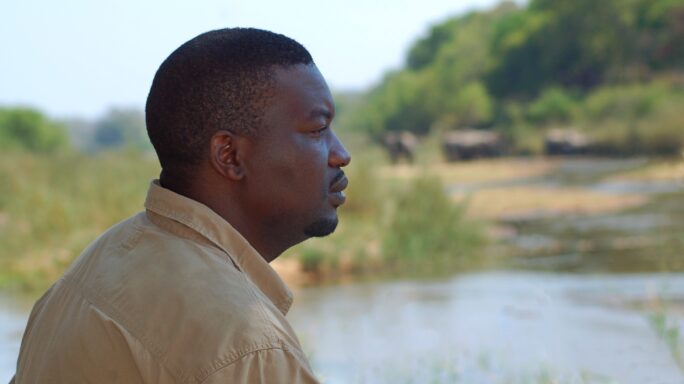Daily money
“Collaboration is the new innovation.” How venture capitalist Octavius Phukubye plans to empower African entrepreneurs

If Octavius Phukubye ruled the world, the first thing he’d do is offer Black women equal pay. Not only because it’s long overdue, but because he believes that Africa’s potential relies on the success of Black entrepreneurs and, in particular, Black women-owned small businesses.
Growing up, Octavius witnessed his mother – a subsistence farmer and shebeen owner – working day and night to ensure that not one of her 11 children went to bed hungry.
It became his passion and life’s work to create access to growth opportunities for undermined and underserved talented African entrepreneurs. And he’s stayed true to his philosophy: “My word is my honour.”
Octavius founded Brillianaire, an impact catalyst that enables entrepreneurs to launch enduring companies that are supply chain competitive and venture capital investment ready.

Through enterprise and supplier development, venture partnerships, and acceleration and incubation support, Brillianaire designs and executes impact investment programmes in the early stage investment space.
For Octavius, impact is the ability to make meaningful, positive change in people’s lives. It’s this value that guides his investment approach, which has collaboration at its core.
Collaboration is the new innovation.
Octavius’s passion and mission to develop African entrepreneurs aligns perfectly with the goals of Global Entrepreneurship Week (GEW2020). Taking place from 16 to 22 November, #GEW2020 rallies behind initiatives that promote, encourage, and support the development of entrepreneurs in four key areas: Education, Ecosystems, Inclusion, and Policy.
Through Brillianaire, Octavius hopes to facilitate collaboration, networking, and knowledge-sharing between start-up ecosystems, and to broaden inclusion for more African entrepreneurs.
“Entrepreneurship is the answer to the worrisome economic challenges facing Africa today, including job creation, income inequality, human capital development, regulation, poverty, and inclusion,” says Octavius.
But hidden in all this chaos, is innovation.
“Black entrepreneurs are incredibly talented and are leading in building competitive solutions using innovative technology capabilities such as AI and machine learning to solve health, agriculture, and enterprise problems.”
But these early stage entrepreneurs are underserved in Africa, especially when it comes to accessing capital, markets, and information. The more that institutional players in the ecosystem collaborate to empower these start-ups, he says, the more value entrepreneurs and small business owners derive, and the more value they deliver to the continent.
“There is absolutely no reason for a single Rand to be invested in a silo by any stakeholder in South Africa. The economic multiplier of working collaboratively has proven to accelerate the transformative impact we seek in Africa’s entrepreneurship and small business development ecosystem.”
A better use of his money, he believes, is to invest in the cost of destroying the social structures that inhibit Africans, and especially woman, from participating as entrepreneurs in this ecosystem.
Advice from a venture scout
As Venture Scout for Microtraction, a technology start-up investor, and with a Master’s Degree in Development Finance and extensive experience as a venture capital analyst, Octavius knows a thing or two about what appeals to investors.
He’s also seen that the most successful entrepreneurs have three things in common:
- An eye for spotting talent,
- A considerate and kind nature, and
- Attention to detail.
Octavius has this priceless advice for start-ups and entrepreneurs:
- Build up your cash reserves. “Save 10% of every invoice to increase your cash reserves and internal capital efficiency.”
- Start small. “Start as basic as possible and as early as possible. Your early failures will become important entrepreneurial lessons and experience.”
- Know your customers well. “This is crucial if you’re seeking funding. Understand your user, and intelligently speak about markets, finance, and start-up growth metrics.”
- Embed systems early on. “Learn from my mistake. Not having systems significantly reduces your growth potential.”
- Use advanced, cloud-based business management solutions. “We started using Sage One (now Sage Business Cloud Accounting) early on, and it’s grown with the business. I cannot imagine life without it. With my accounting software and business banking fully integrated, it’s easier to monitor our performance and to know which customer segments to prioritise in our acquisitions.
Octavius grew up as herd boy and cow whisperer who still knows how to brew pineapple and watermelon beer – a skill learnt from his late mother.
These days, a typical day includes start-up pitch sessions, process engineering for impact programmes, and investment meetings.
With his sights set on building a borderless investment advisory and project management firm in Africa, Octavius hopes to collaborate with institutional investors to deploy capital in transformative ways across the continent.







Ask the author a question or share your advice